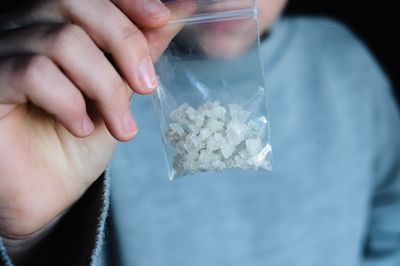
As meth use among gay men skyrockets, so do addiction and overdose rates.
Members of the LGBTQ community have higher rates of substance abuse than the general population, according to the Centers for Disease Control and Prevention (CDC). One especially troubling phenomenon is the rise of crystal methamphetamine (meth) use among gay men. Here’s a closer look at the phenomenon, along with why finding the right treatment program can be the key to recovery.
Sexualized Drug Use and the Gay Population
“Meth use among gay men has returned with dramatic ferocity,” observes David FPh.D.ett, PhD, LCSW, in the Psychiatric & Behavioral Health Learning Network’s Addiction Professional, the official news source of the National Conference on Addiction Disorders (NCAD). Specifically, the use of meth in New York’s gay community more than doubled in a three-year period, a pattern which was echoed in other major cities, including San Francisco and Los Angeles.
This begs the question: why are so many gay men turning to meth? For starters, it is increasingly being used for sexual enhancement among this population in practices known as “chemsex” and “party n’ play.” While this can increase pleasure and decrease anxiety, it can also lead gay men to engage in risky sexual behaviors with partners with whom they would not otherwise choose to be.
Even worse? Many people are unaware of the extent of the dangers of using meth. Continues Fawcett, “The meth epidemic is a perfect storm, combining an extremely potent drug with heightened sexual desire and high-risk sex, occurring in communities with high rates of HIV, hepatitis C, and other STIs.” The situation becomes even more alarming when you factor in the increasing presence of fentanyl and other synthetic opioids, and the growing number of cases of overdose associated with them among meth users.
Fawcett goes on to cite the unique neurotoxicity of meth, which means it stays in the brain’s dopamine receptor for as long as nine hours (significantly longer than cocaine), destroying it in the process. As it can take up to 18 months for the brain to regenerate this system, it can lead to several complications over that time, including everything from depressed feelings to increased risk of relapse. This can impact the success of certain interventions, including cognitive-behavioral therapy (CBT).
Treating Meth Addiction in Gay Men
According to Fawcett, treating meth not only requires knowledge of the specific attributes of the drug that influence addiction and recovery, but also requires knowledge about the population, as well.

With the right treatment, recovery — and a better life — is possible.
This is easier said than done. Says Assistant Professor of Medicine Rod Knight, “Unfortunately, there are limited options available for gay and queer men who want to quit or reduce their meth consumption. Most sexual health-care services do not offer specialized substance use services. Similarly, conventional substance use services do not consider how a patient’s sexuality or sexual behavior may relate to their drug use patterns.”
It’s not, however, impossible. The key lies in treating addiction within its unique context. Continues Knight, “We found that most of the effective strategies to integrate services rely on various counseling techniques — including those that center around an individual’s internal motivations to change their substance use behavior….For gay and queer men who use meth, the motivations are complex and often rooted in experiences of loneliness, violence and other forms of trauma resulting from the social conditions of their lives, rather than the individual choices they make.”
While the growing trend of meth use among gay men is disconcerting, studies of treatment confirm what we already know, namely, that LGBTQ community members benefit from an integrated and affirming therapeutic approach during addiction treatment. Enter leading St. Louis area substance abuse treatment program Harris House’s LGBTQ-specific substance abuse programming. If you or any of your loved ones are struggling with addiction to meth or another substance, call us today to learn about admissions.







